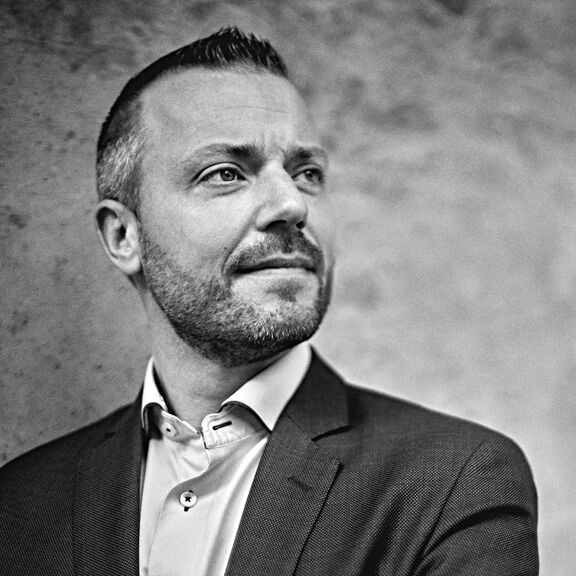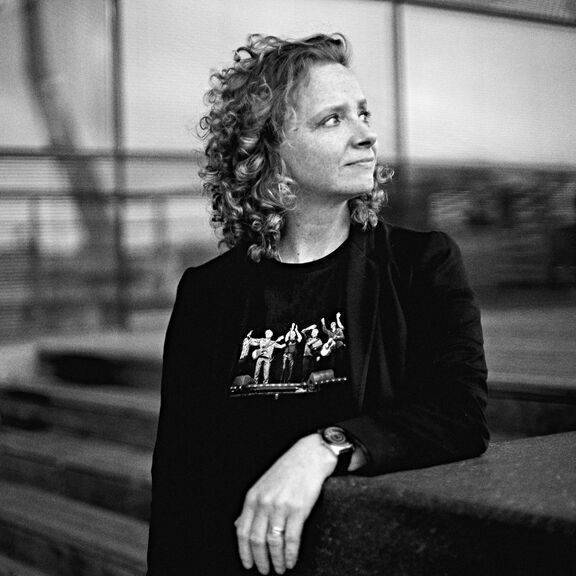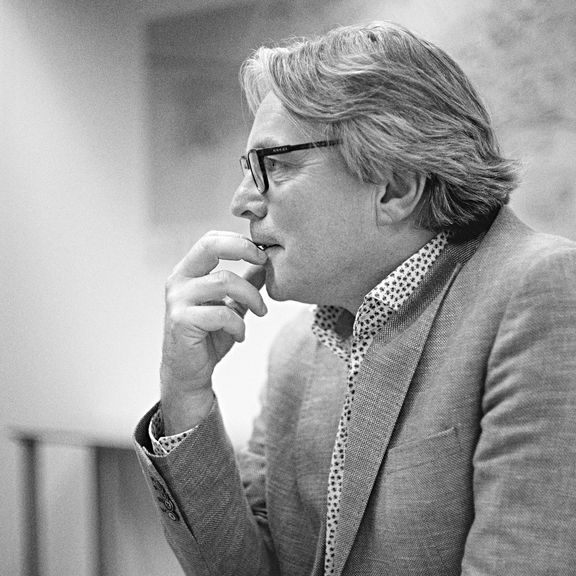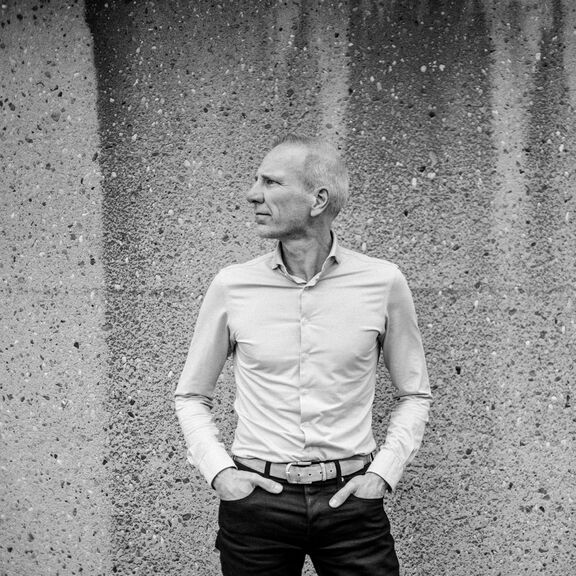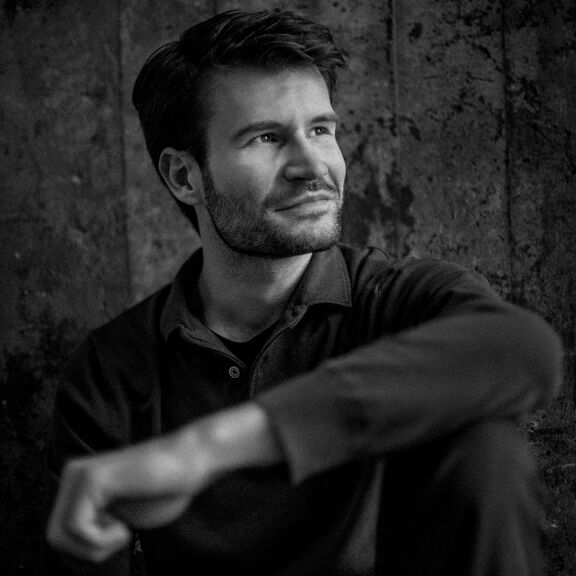‘The energy transition will be impossible to achieve without a raw materials transition.'
Reading time: 6 minutes
Maud Eijgendaal is Program Manager Renewable Fuels & Chemicals with the Port of Rotterdam Authority. She is working on the transition of raw materials, and as far as she´s concerned, things aren’t moving fast enough. Maud: 'I may get a little too impatient sometimes. I understand that things take time, but I also believe we should always stay impatient. We have little time to spare.'
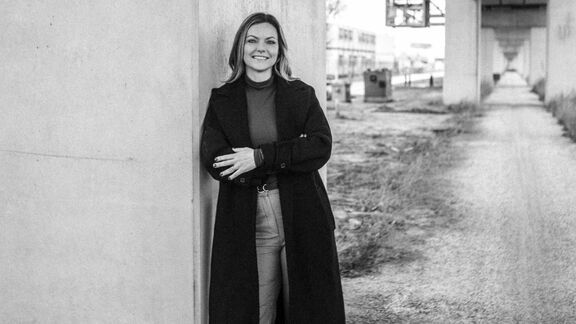
Maud has been with the Port of Rotterdam Authority for 14 years, during which she had various positions. During those years, she learned everything there is to know about the port. In her current role, she has somewhat of a different background than most of the people she is in contact with. 'I started out my career as a lawyer with an international law firm. When I came across the job vacancy for a legal counsel with the Port of Rotterdam Authority, I took my chances and got into the corporate world. In that position, I was involved with maritime liability affairs, where I learned all the ins and outs of the port and its clients in the shipping and industry sectors. I found out for myself that I wanted to work even more closely with our clients, which is why I started to work in various positions within the Commercial department. That is when I first learned about alternative fuels professionally, and I contributed to setting up LNG bunkering in the port, among other things. A topic that I have always found very interesting. Nowadays, I work as a Program Manager Renewable Fuels & Chemicals and my team and I are working on the development of a new raw materials and fuels system that focuses on the expansion of local production.'
Instigator and content developer
The Renewable Fuels & Chemicals programme focuses specifically on replacing fossil fuels and raw materials by using e.g. biomass, recycled materials, green hydrogen and CO2. Maud: What am I doing as a Program Manager regarding this topic? It consists of two things: on the one hand, I am responsible for the programme’s progress. The administrative side of things, if you will. Most of my time, however, is spent on content-based projects focussing on attracting and deploying opportunities in the area of renewable raw materials and fuels. The goal is to speed up the raw materials transition together with the team and my colleagues, as well as the clients and stakeholders.'
Symbiotic relationship
What is the relation between the raw materials transition and the energy transition? 'The energy transition will be impossible to achieve without a raw materials transition. That’s because it will impact the climate goals, as these topics are completely intertwined. You can’t have one without the other. The energy transition is receiving a lot of attention – and that is a good thing. In our programme, we are doing our best to emphasise, both internally and externally, the significance of the raw materials transition. Also, we are continuously looking for clients, projects and investments that can contribute to it.'
Circular initiatives
Maud continues: 'We should consider carefully where we will be getting our raw materials from in the longer term, as those are sorely needed for e.g. the construction of windmills. Or new electrolysers for electric car batteries. Since the EU cannot provide those quantities of essential raw materials, we are dependent on third countries, who own 90% of global production, for some of these essential raw materials. Sustainable management of raw materials is becoming increasingly important to ensure that they will remain available for the generations of the future, and in order to reduce the environmental impact caused by their extraction and use. That is what we must be focussing on: how are we to generate sufficient raw materials in the Netherlands that we need later – or actually already now – to accelerate the energy transition. Considering things from the programme’s perspective, we evaluate feasibility and the opportunities to refine, to import and use and re-use raw materials within the port in the right way. 'Several circular initiatives have already been launched within the port. Maud indicates that the company TES is a fine example of that.
'TES is one of the largest companies in the world in the field of battery recycling and electronic waste. They recycle electric car batteries in the port of Rotterdam.'
'However, what many people do not know, is that our port is also one of the largest biofuels clusters in the world.'
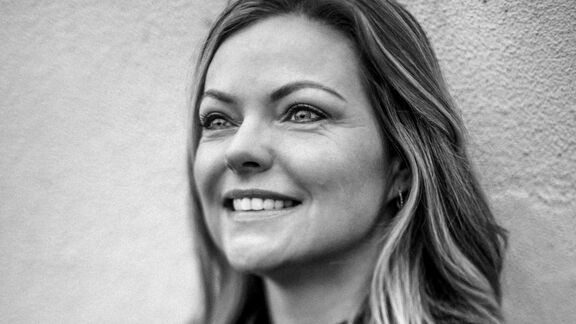
Largest bio-fuel cluster in the world
And what about fossil fuels? What will happen with that? Maud: 'Setting up a successful new fuels system is the other part of the programme. In order to achieve a circular economy, we have to abandon the use of fossilfuels. Especially in certain sectors, like aviation and shipping, fuels will be needed for the foreseeable future and we are looking at sustainable alternatives. In my role, I am closely involved in researching opportunities to expand the local biorefinery cluster with existing and new clients.'
Maud is very much aware of the role the port has to play in the raw materials transition. Maud: 'As many people are aware, a very large petrochemicals and fuels cluster is operational on port of Rotterdam premises. However, what many people do not know, is that our port is also one of the largest biofuels clusters in the world – a position we wish to expand on in the upcoming years. In order to achieve this, we already formulated a number of concrete ambitions a few years back, and that is something we can be proud of. We have an important role to play in identifying, researching, starting up and supporting opportunities, but also to keep developing a solid environment for companies, both current and new, that can make an important contribution to the raw materials transition.'
To biofuels, through biofuels
What is Maud’s take on the current petrochemical and fuels cluster in view of the raw materials programme? 'No real-time supply chain goals have been set yet in terms of CO2 emissions throughout the lifecycle of all products that a company purchases, manufactures and/or sells (Scope 3). But that does not mean that we are not shooting for the stars when it comes to delivering our contribution, especially to the chain. Of course, there is still a lot of fossil industry within the port. Half of our cargo handling is dependent on fossil products. I realise that is a challenge, but it is also an opportunity – as many new investments in biofuels are being done within our cluster. Take Shell and Neste, for example. They are both constructing a bio-refinery for the production of sustainable aviation fuel that is to be used throughout Europe eventually. The cluster also ensures the attraction of new parties, because with us, everything is already in place and in bloom. We have the infrastructure set up, combined with a lot of knowledge and experience in the area of almost all types of fuels. This port really has what it takes to accelerate the raw materials transition, but you can’t turn things around just like that.'
The world in 30 years’ time
Despite her own eagerness, Maud realises all too well that the transition will take time. When asked what the port will look like years from now (when her young son will be a grown-up), she responds: 'At first glance, I don’t think the port will be looking much different from now, but let’s hope things will be looking different when you look under the bonnet. With a lot more space and room for sustainable raw materials and fuels. Hopefully, the aviation sector will have embraced sustainable aviation fuel as the norm by the time my son reaches my age. As port and industrial complex, we are working hard to put the pieces of the puzzle together.'
MAKING WAVES
In this series, you'll hear from people who are committed to a smart and sustainable port of Rotterdam, and our planet as a whole. Let them inspire you and help make that a reality.
